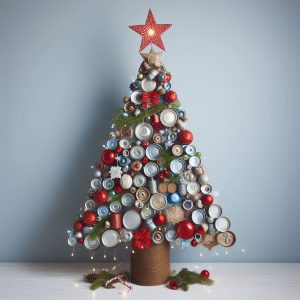It’s the middle of summer and you’re probably enjoying a well-deserved vacation.
And while we should have fun on our days off, we shouldn’t let our recycling get slack.
Summer is one of the times of year when we generate the most waste: bottles, containers, bags, disposable utensils…
All of this can have a huge impact on the environment if we don’t recycle properly.
At Baidal, as specialists in plastics recycling and processing, we want to help you recycle better during the warmer months.
Because every small gesture counts in building a more sustainable future.
Why is it more important to recycle in the summer?
During the summer, outdoor activities, travel, fast food, and the use of single-use products increase.

Consumption of cold drinks and packaged foods is also increasing, significantly increasing the amount of plastic waste.
If not managed properly, these wastes end up on beaches, rivers, forests, or in landfills, polluting our natural environment.
Therefore, adopting good recycling habits in the summer is not only important, it’s necessary.
7 practical tips for recycling better in summer
At Baidal, we want recycling to be easy, convenient, and part of your routine, even on vacation.
Here are some tips you can apply starting today:
1. Learn about local containers
If you’re on vacation in another city or country, check how the local recycling system works.
Colors and categories may vary.

Having this information on hand prevents errors and ensures that your waste is recycled correctly.
2. Always carry a bag to separate waste
Whether at the beach, in the mountains, or at a barbecue, have a bag handy for plastic, cans, or paper.
Separating waste at the time makes it much easier to recycle later.
3. Avoid the use of single-use plastics
Reusable bottles, bamboo cutlery, Tupperware, and cloth bags are excellent options for reducing waste.
At Baidal, we work every day to give plastic a second life, but the most sustainable option is always to reduce its consumption.
4. Clean containers before throwing them away
A common mistake is to throw away dirty containers or containers with food leftovers.
This can contaminate other recyclable materials.

A quick rinse is all it takes to ensure proper sorting.
5. Recycle outside the home too
Many people think that recycling is only done at home.
But more and more public spaces (beaches, parks, shopping centers) have separate containers.
Use them and set an example.
6. Be a conscious consumer
Choose products with recyclable or biodegradable packaging.
Check the labels and choose brands that support recycling and the circular economy.
7. Educate and share
If you have children or are with friends, talk about the importance of recycling. Involving others and encouraging sustainable habits multiplies the positive impact.
Recycling and circular economy
At Baidal, we are dedicated to the recovery and transformation of plastics to give them a new useful life.
We work with industries, distributors, and manufacturers that focus on high-quality recycled materials and a more environmentally friendly production model.
We promote responsible practices that help reduce the environmental footprint.
We turn waste into resources, closing the plastic cycle with technology, innovation, and environmental commitment.
🌱 Together, we’re giving plastic a second chance.







